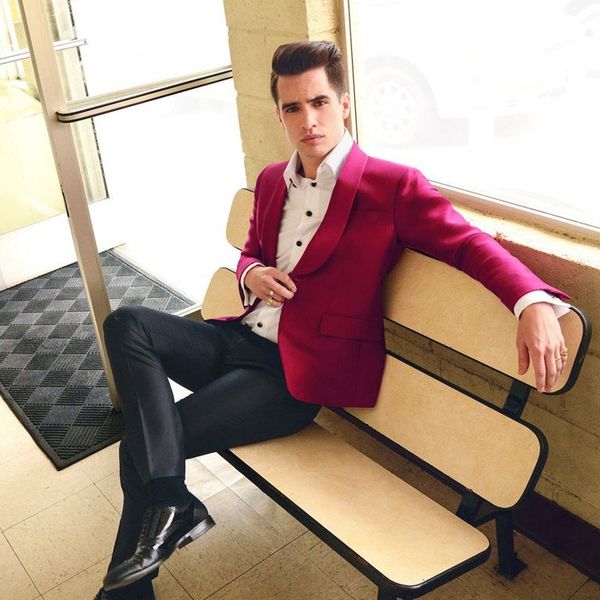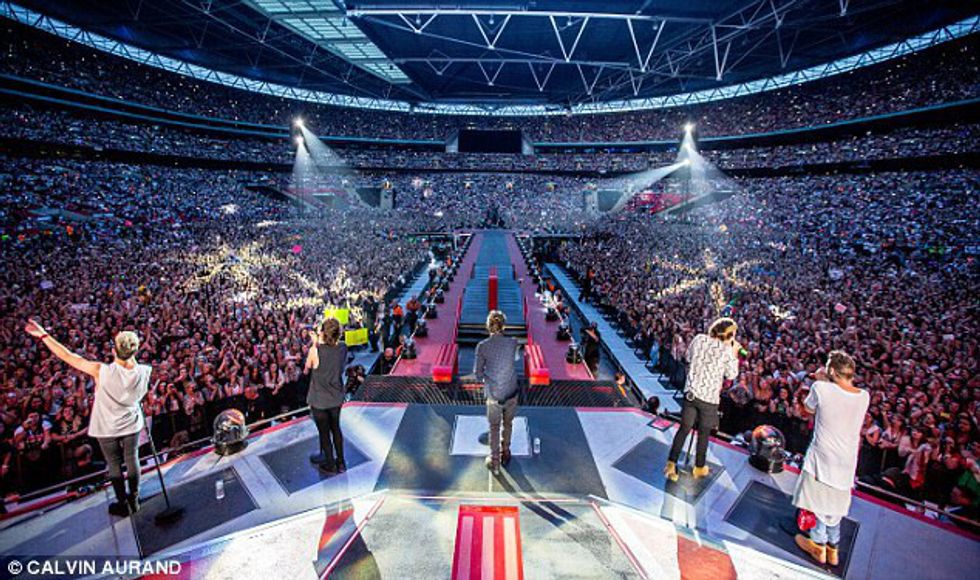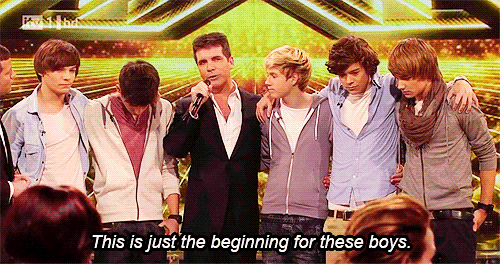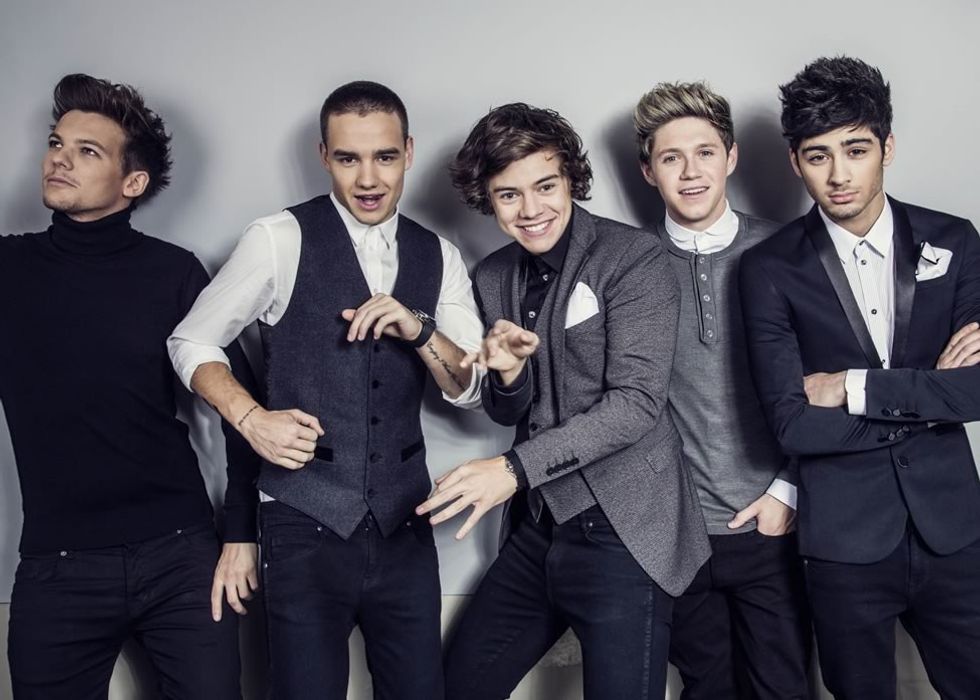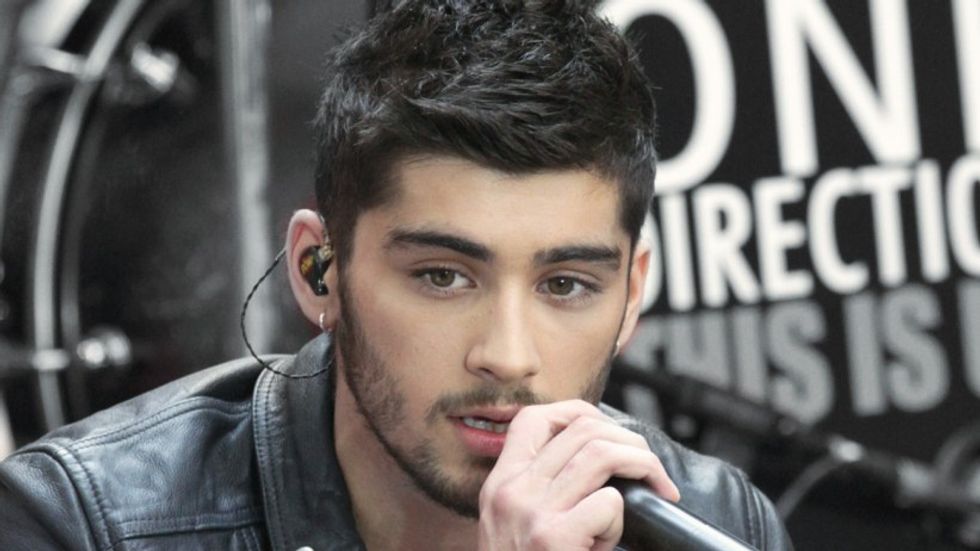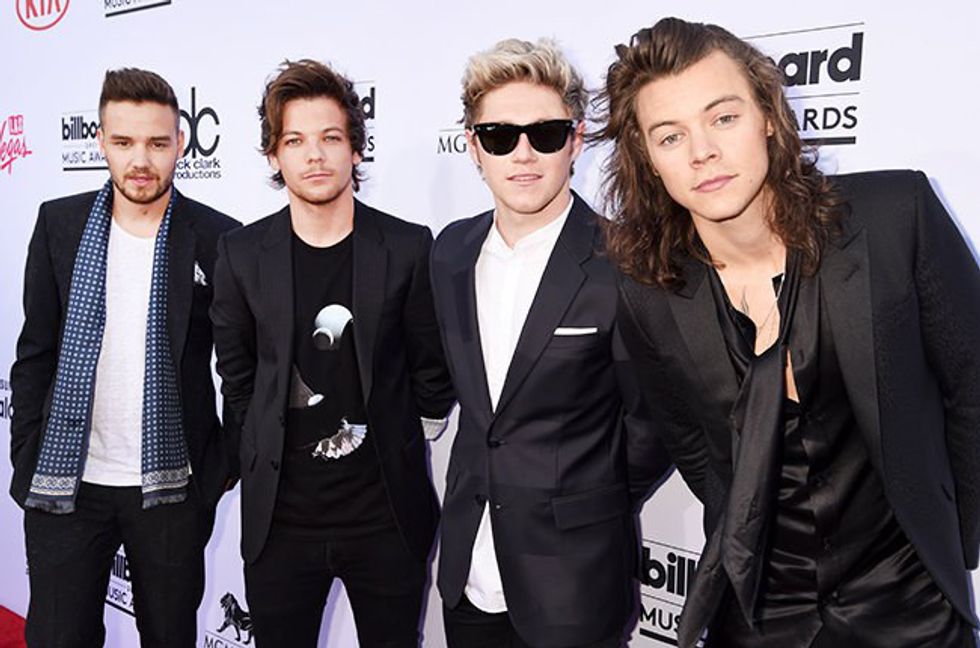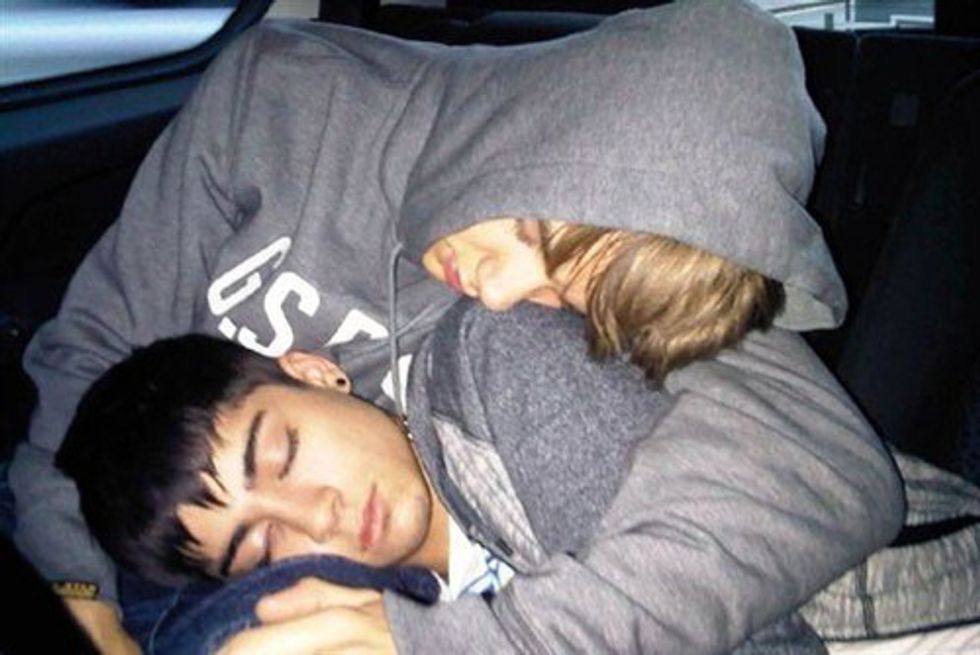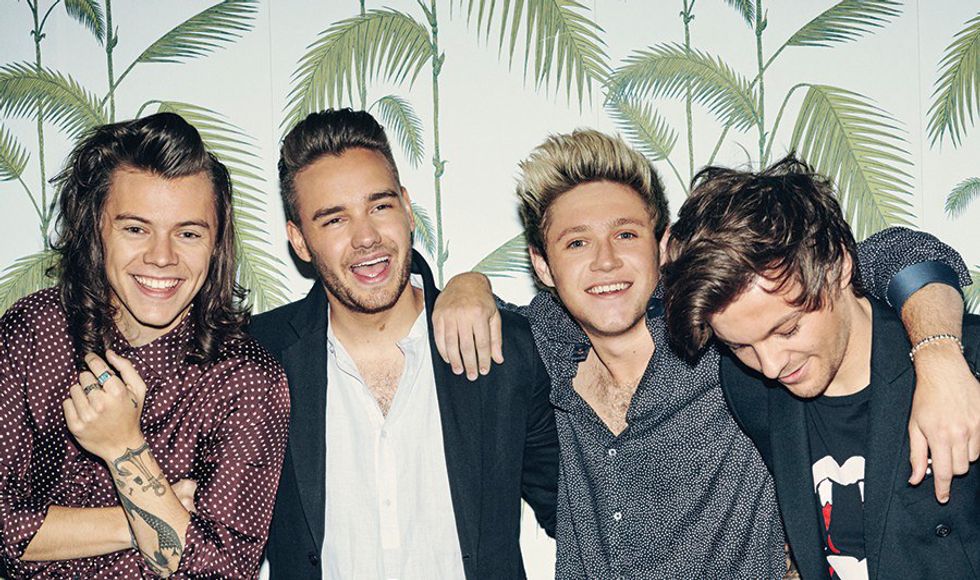“People tell me I’m a good singer, but it’s usually my mum,” admits a young Harry Styles, age 16, on the morning of his first X-Factor audition on April 11th, 2010.
Five years, five albums, and over five million fans later, it’s clear Mama Styles wasn't the only one with ears for Styles.
One Direction is one of the biggest boy bands of our generation. With over 50 million records sold over the span of five years, and four consecutive albums debuting at number one, their success is indisputable— and their fan base in a word is simply: indescribable.
But how did this global spotlight come to dawn on five teenage boys with little to no foresight of their career taking off?
As Directioners are eager to point out to those unaware of the band’s history (pre-global success/world domination), One Direction did not win X Factor. Actually, the band came in third place.
Losing the competition didn’t hinder them in the slightest. After signing an exclusive contract with Simon Cowell’s record label Syco Music, One Direction’s debut single “What Makes You Beautiful” became number one in the UK, and then went off to win a Brit Award in 2011. Their debut album "Up All Night" was released in November 2011 and became the fastest-selling debut album in the UK before reaching number one on the US Billboard 200.
(Um. Wow!)
Of course, as the boy band grew in popularity, they also became an easy target for public cynicism. There was a period of time I couldn’t even mention the name "One Direction" without boys in my high school snickering and spitting out words like “gay” or “ew” in reference. After all, this behavior is only natural toward mainstream artists in our semi-elitist generation (and just about every generation). To put it more eloquently, haters gonna hate.
So, yeah, 1D may have gotten some hate, but they received tons more love as the group continued to grow and win over the hearts of a now 26+ million Twitter fanbase, along with gaining respect from fellow musicians, coworkers, and friends in the industry. Not to mention the hefty list of awards granted via the Brit awards, Kid’s Choice awards, Teen’s Choice awards, People’s Choice awards, Shorty awards, MTV, WMA, AMA, BBC Radio…and so on.
I mean, they’re practically the epitome of the American (er…British-Irish?) dream, their career having been a true “started from the bottom, now we’re here” phenomenon.
But this kind of success comes at a price.
On March 25th, 2015, Zayn Malik left One Direction.
“My life with One Direction has been more than I could ever have imagined,” he said in a post on the band's Facebook page, “But, after five years, I feel like it is now the right time for me to leave the band.”
This. News. Exploded.
Spread on Facebook, Twitter, Tumblr, TV, Snapchat, and Instagram within seconds, the news circulated and recirculated as fans continued to post, share, and just totally die-on-the-inside.
“Where were you when you found out Zayn was leaving 1D?” became a widely used phrase for 2015. (I, for one, was in class. I didn't take very good notes that day.)
Of course, it isn’t uncommon for a band to split up. We’ve seen it all too often. Guns 'N' Roses. Oasis. No Doubt. The Beatles...
But Zayn’s departure opened a gateway for further analysis of the pop band sensation.
Were the members secretly miserable? Did they not get along? Were they having issues with their contract? With their music style? With their schedule?
Although most were somewhat aware of 1D’s rigorous schedule, it wasn’t until Zayn left that people started to break it down and really see the true extent of it. Soon enough, it was evident that the band’s five-year contract was astonishingly rigorous, and their management team ruthless in the boys' exploitation.
Indeed, One Direction was immensely overworked.
Five consecutive years of constant producing, performing, filming, and attending publicity events (with little to no breaks) took a huge toll on the boys’ health as they transitioned into early adulthood.
Signs of the band being overworked are everywhere--from their music to their press conferences to their live performances. If you just look at one of their music videos, you’ll notice trends of limited time, detached sentiment, or an overall lack of quality in the production. By no coincidence, this parallels with their content being released unrealistically quickly. On their Vevo channel alone, new videos had been uploaded almost daily.
“Look, even though they’re young, that is a grueling schedule,” admits Simon Cowell. “After a while, I could see they were exhausted.”
Just two years into their contract, their "This Is Us" film documentary revealed hints of their strenuous schedule. In one scene, they were shown getting up early in the morning after performing a sold-out show the night before.
"Recording this album has been extremely hard," admits Niall in the film. "We've been waking up in the morning, and going straight to the studio, then going to the arena and doing a show...and then going straight back to the studio after a show."
So why did they agree to such a demanding five-year engagement? The answer's simple: They were 16. They were ambitious. And they were freakin' excited.
Of course, they jumped at the first opportunity presented to them.
A heavily-loaded contract took five starry-eyed teenagers and threw them into a kind of fame they had never even imagined...but also left them ultimately burnt out.
In August of last year, the band announced they would be taking a hiatus in March 2016 upon fulfilling their contract, one recently said to last 18 months. There are several rumors that the group of four will split up after this, and 1D's latest music video for their song "History"—which includes a collage of memories from their past experiences as a band— definitely points in this direction... pun intended. (p.s.--watch this video, but grab some tissues first!)
As Simon Cowell said, "They're going to take some time off and they're going to decide what they want to do."
Being "One Direction" was definitely challenging, and a situation we will never know all the difficulties behind. But we can at least say, with some level of certainty, that the boys were able to get through it together while gaining lifelong friendship, respect, and the experience of a lifetime.
As Niall Horan so beautifully puts it, "We're the luckiest dudes in the world."


